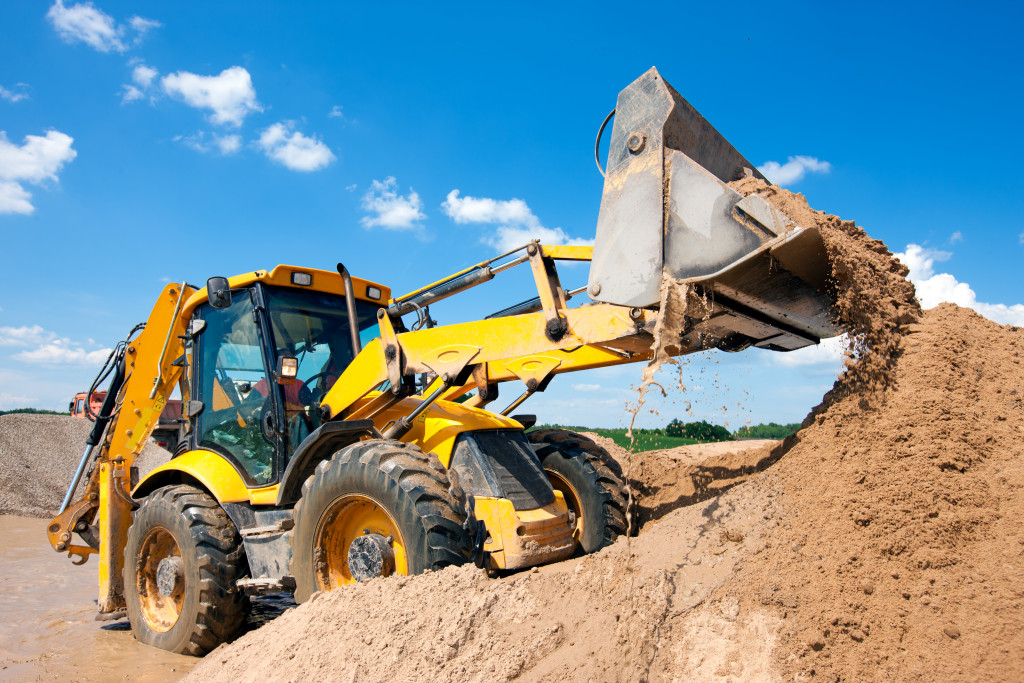Heavy equipment, especially those on wheels, is an integral part of any construction project. Without it, projects would be time-consuming and exhausting to complete and be far more expensive. Here are some statistics to illustrate the importance of heavy equipment:
- In the United States, there are more than 1.5 million construction workers. Of those, nearly one million rely on heavy equipment to do their job.
- Heavy equipment accounts for more than 60% of all construction costs.
- The use of heavy equipment reduces labor costs by up to 50%.
These statistics clearly show that heavy equipment is essential for any construction project. It reduces labor costs, speeds up project completion, and increases job site safety. Finding a construction project that does not utilize at least some heavy equipment will be challenging. As a result, they become valuable assets that require a lot of maintenance and repairs. Here are a few tips to help set up an effective system.
Create Maintenance Processes and Procedures
The first step is to establish maintenance processes and procedures. This step will ensure that all equipment is properly cared for and that no critical steps get missed. Maintenance processes should get designed to fit the specific needs of each piece of equipment. For example, a method for checking the oil level in an excavator will be different than a process for checking the tire pressure in a bulldozer.
There are many factors to consider when creating maintenance processes and procedures. The type of equipment, frequency of use, operating environment, and manufacturer recommendations are just a few. Once all these factors have been considered, it is time to start writing down the steps involved in each process.
It is essential to keep track of all maintenance activities. This strategy will help prevent equipment breakdowns, identify issues early on, and extend the life of the equipment. Construction companies can use a simple logbook to track all maintenance activities. Include the date, time, machine hours, operator name, and other relevant information.
Regularly Check and Inspect Equipment

Another important tip is to check and inspect all equipment regularly. This strategy should be done even if the equipment is not used daily. A thorough inspection will help identify potential issues that could lead to equipment failure.
It is essential to have a regular schedule for checking and inspecting equipment. This step will ensure that all items get reviewed regularly. The frequency of inspections will depend on many factors, including the type of equipment, operating environment, and manufacturer recommendations.
Some additional inspection tips include:
- Check for any visual damage, such as cracks, dents, or scratches.
- Inspect all moving parts, such as chains, bearings, and gears.
- Listen for any strange noises that could indicate an issue.
- Check fluid levels and look for leaks.
- Make sure that all safety devices are working properly.
It will be necessary to perform some repairs and maintenance tasks more often than others. You should prioritize these tasks to ensure that they get completed promptly.
Store Replacement Parts and Tools
It is also important to have replacement parts and tools on hand. This will help ensure that you can make repairs quickly and efficiently. When ordering replacement parts, get the correct size and type for each piece of equipment.
Most pieces of heavy equipment are on wheels, which makes them easy to move around. However, this can also make them difficult to store. When not in use, they should be stored safely and securely. This step will help prevent theft and damage. You can also use equipment wheel socks to help secure equipment in place. They will lessen the damage when equipment is not in use, making it easier to move around when needed.
Keep the Work Area Clean and Organized
Another tip for caring for heavy equipment is to keep the work area clean and organized. This step will help prevent accidents and injuries. It will also make it easier to find the tools and parts you need when something needs to get fixed.
A clean and well-organized work area will also help extend the life of your equipment. Dirt, debris, and other materials can damage or even destroy equipment if they are not removed regularly. It might take extra time to keep things clean, but it will be worth it in the long run.
Employees will be responsible for cleaning the work area and keeping it organized. They can do this during breaks or at the end of each day.
Final Thoughts
These tips will help you care for your heavy equipment and extend its lifespan. Proper maintenance is essential for keeping your equipment in good working condition. You can prevent significant issues from developing by taking the time to check and inspect your equipment regularly. Keep your work area clean and organized to help prevent accidents and injuries. Finally, ensure you have the correct replacement parts and tools to fix any issues that might arise.



